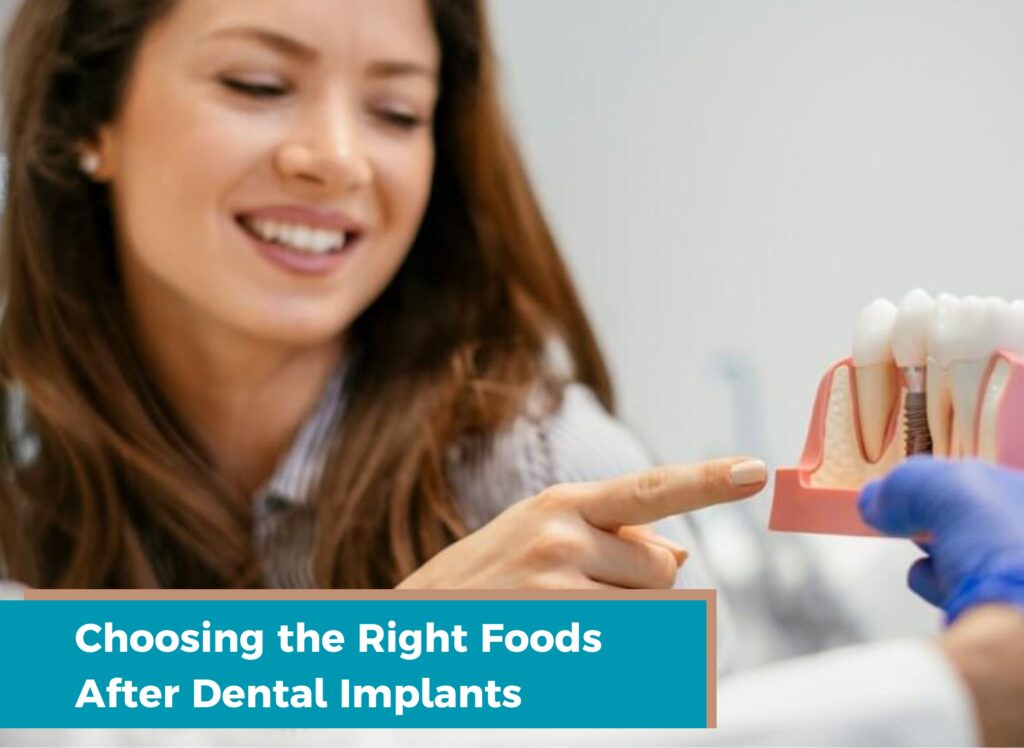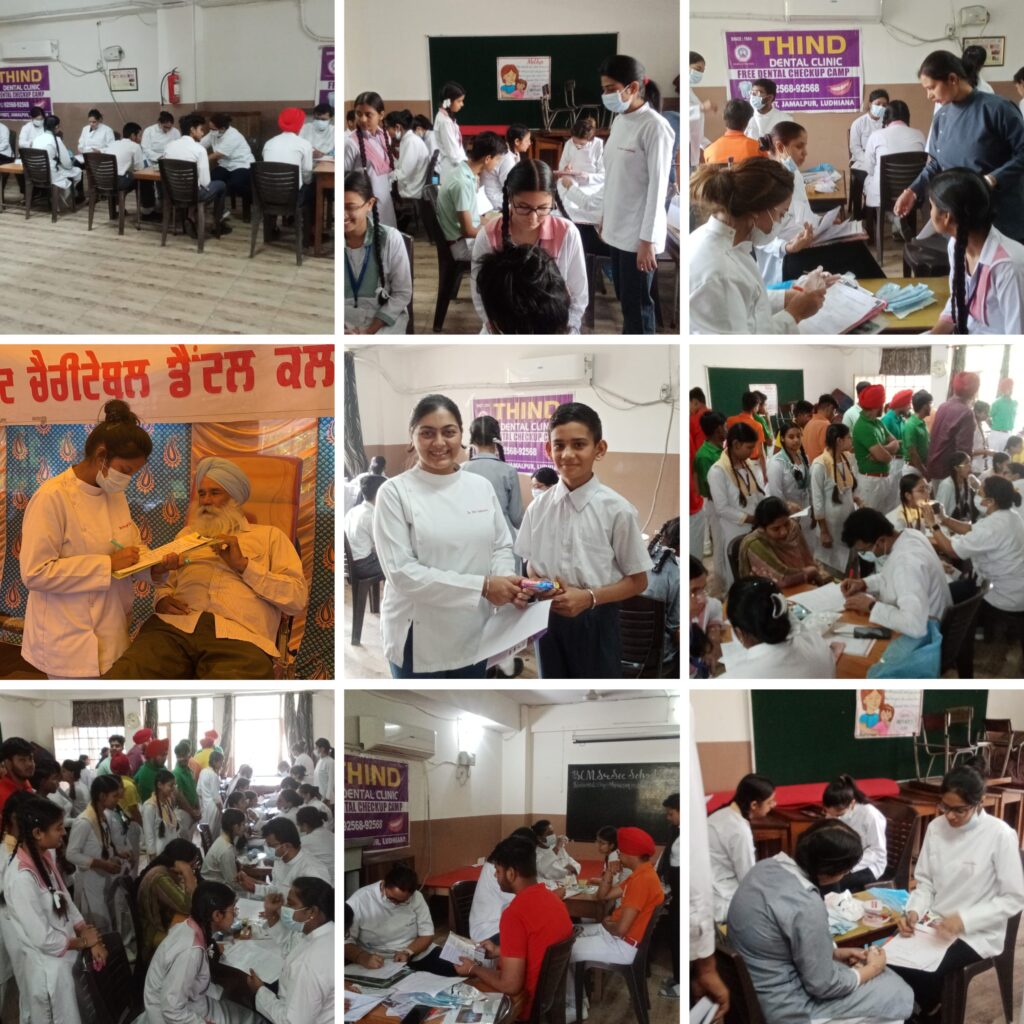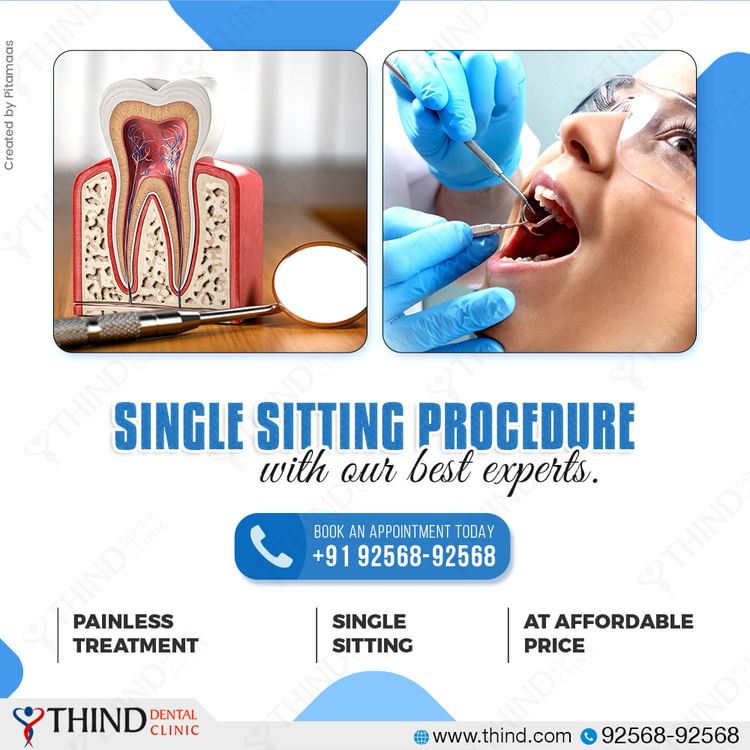Undergoing dental implant surgery is an exciting step towards restoring your smile and regaining optimal oral health. To ensure a successful healing process and the long-term success of your dental implants, it’s important to make mindful choices when it comes to your diet. The foods you consume after dental implant surgery can greatly impact your healing, comfort, and overall oral health. In this article, we will explore the importance of choosing the right foods after dental implants and provide helpful guidelines to support your recovery journey.
1. The Healing Process
After dental implant surgery, your body goes through a healing process during which the implants integrate with your jawbone. It’s essential to consume foods that promote healing and provide the necessary nutrients to support tissue regeneration and bone growth. Opting for the right foods can also help minimize discomfort and reduce the risk of complications.
2. Soft and Easy-to-Chew Foods
During the initial phase of healing, it is recommended to stick to a soft food diet. Soft foods are gentle on the surgical site, making them easier to chew and swallow. Some examples of soft foods include mashed potatoes, cooked vegetables, yogurt, scrambled eggs, smoothies, and soft fruits like bananas and avocados. These foods provide essential nutrients while minimizing stress on the surgical area.
3. Nutrient-Rich Foods for Healing
To promote optimal healing and boost your immune system, it’s important to include nutrient-rich foods in your diet. Foods high in protein, vitamins, and minerals can help accelerate the healing process and support tissue repair. Incorporate lean meats, fish, poultry, eggs, legumes, dairy products, and tofu into your meals. Additionally, include a variety of fruits and vegetables to ensure an adequate intake of vitamins and antioxidants.
4. Hydration is Key
Staying hydrated is crucial for your overall health and plays a significant role in the healing process. Drinking plenty of water not only helps keep your mouth clean and hydrated but also aids in the production of saliva, which is essential for maintaining oral health. Avoid sugary drinks and opt for water or unsweetened beverages to promote healing and prevent complications.
5. Avoid Hard, Crunchy, and Sticky Foods
While your implants are healing, it is important to avoid hard, crunchy, and sticky foods that can put excessive pressure on the surgical area and potentially damage the implants. Avoid chewing on ice, hard candies, popcorn, nuts, and sticky foods like chewing gum and caramel. These foods can disrupt the healing process and increase the risk of complications.
6. Mindful Eating Habits
In addition to choosing the right foods, practicing mindful eating habits can further support your recovery after dental implant surgery. Take your time to chew your food thoroughly and avoid using the implant area as leverage for biting or chewing. Be mindful of your chewing forces and avoid any actions that may strain or damage the surgical site. Following these guidelines will help ensure a successful healing process and enhance the longevity of your dental implants.
Foods to avoid after dental implant surgery
1. Hard and Crunchy Foods: Avoid foods that require significant biting or chewing force, as they can put undue pressure on the surgical area. This includes hard fruits and vegetables like apples and carrots, hard candies, nuts, and popcorn.
2. Sticky and Chewy Foods: Sticky and chewy foods can get stuck around the surgical site, causing irritation and potential damage to the implants. Steer clear of chewing gum, caramels, taffy, and similar sticky treats.
3. Spicy and Acidic Foods: Spicy foods and acidic ingredients can irritate the surgical area and delay the healing process. Avoid hot peppers, hot sauces, citrus fruits and juices, tomato-based sauces, and vinegar-based dressings.
4. Carbonated and Alcoholic Beverages: Carbonated drinks can create discomfort and increase the risk of complications. It’s best to avoid sodas and carbonated beverages. Additionally, alcoholic beverages should be avoided, as they can interfere with the healing process and cause dehydration.
5. Smoking and Tobacco Products: Smoking and using tobacco products can significantly hinder the healing process and increase the risk of implant failure. It is highly recommended to abstain from smoking or using any form of tobacco during the healing period.
Additional methods to maintain your dental implants
Caring for your dental implants goes beyond just eating the right foods. There are other important factors to consider to maintain their longevity and ensure optimal oral health.
First and foremost, it is crucial to avoid smoking and tobacco use. These habits not only pose serious risks to your overall health but can also have detrimental effects on your dental implants. Smoking slows down the healing process and weakens the gums surrounding the implant, increasing the risk of implant failure. It is strongly advised to quit smoking and avoid all forms of tobacco to promote the success of your dental implant procedure.
In the initial days following your dental implant surgery, it is recommended to modify your oral hygiene routine. While electric toothbrushes and water-flossing devices are generally effective in maintaining oral health, they can be too aggressive immediately after the surgery.
Instead, opt for a traditional toothbrush with soft bristles and gently brush the area surrounding the implant. Avoid applying excessive pressure or scrubbing vigorously. Similarly, use gentle flossing techniques to clean between your teeth, being careful around the implant site. Your dentist or oral surgeon will provide specific instructions on when to resume the use of electric toothbrushes and water-flossing devices.
Remember to follow your dentist’s or oral surgeon’s post-operative instructions closely. They will provide you with personalized guidelines based on your specific case and ensure that you have the best chance of successful healing and long-term implant success.
Conclusion
Choosing the right foods after dental implants is vital for a successful healing journey and long-term implant success. Opting for soft, nutrient-rich foods and maintaining good hydration will support tissue regeneration, minimize discomfort, and reduce the risk of complications. Additionally, avoiding hard, crunchy, and sticky foods will protect your implants and promote a smooth recovery. At Thind Dental Clinic in Ludhiana, we are committed to providing comprehensive care, including guidance on post-implant nutrition.
For additional information or to arrange an appointment with us
You can contact us at +91-92568-92568
or visit us at:
THIND DENTAL CLINIC
11-12-13, 14 H.I.G Market, Opposite Water Tank, Ludhiana, Punjab 141010.
Also Read:
Single Sitting Procedure: Painless and Affordable Dental Care at Thind Dental Clinic
Dental Care for Children: Expert Tips for Parents on Caring for Your Child’s Teeth
The Importance and Benefits of Regular Dental Checkups: Ensuring Optimal Oral Health
Professional Dental Implants: Restoring Smiles with Precision and Care at Thind Dental Clinic in Ludhiana

 Timings
Timings


